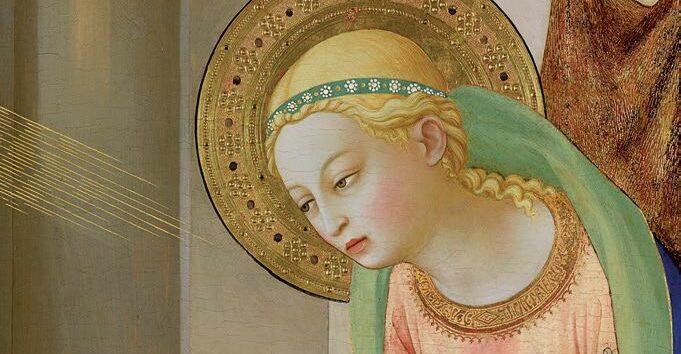On September 12th the Church celebrated the Feast of the Most Holy Name of Mary. What does this mean? Why receiving or giving a name really matters.
Newsdesk (13/09/2022 4:30 PM, Gaudium Press) For contemporary man, lacking a symbolic notion of things, giving or receiving a name is nothing more than a mere social convention, without any deeper connection to the one to whom it is designated.
The conception of the ancient Jews, the people to whom the Revelation had been entrusted, was quite different. In the very first pages of the Holy Scriptures, we read that, after having formed from the earth the beasts of the field and the birds of the air, God led them to Adam so that they might receive a name from him. And the sacred author concludes: “The name which man has given to the living creatures, that is their true name” (Gen 2:19). Thus it indicated that the name given by our first father expressed the preponderant attribute of that being, as the reflection of a divine perfection, according to which the others were ordered. It constituted, therefore, its ontological definition.
Symbolism of the Name
In effect, the people of the Covenant considered the name of a person as carrying a transcendent meaning, especially if inspired by God. Prophesying the personality and dignity of the Messiah, Isaiah affirms that he will be called Emmanuel, which means God with us (cf. Is 7:14; 9:6). When he announced to Zechariah that Elizabeth would conceive and bear a son, Saint Gabriel revealed his mission and his name: John, which means Yahweh is propitious (cf. Lk 1:13-17).
In a similar way, the name of the Mother of God was also revealed. The Archangel Gabriel indicated it to Saint Joachim on the very occasion when he announced to him in a dream that his wife would conceive, despite her advanced age.
Thus the name is the symbol of a deeper psychological, moral, spiritual reality contained in the person. Because of this, the name of Our Lady, like the Most Holy Name of Jesus, must be considered symbolic of the exalted virtue, of the mission, in short, of all that the Blessed Virgin truly is. Mary’s name is the affirmation of her glory and of her inner perfections.
When did Our Lady receive her name?
However, was there a special circumstance or a specific act in which the Virgin formally received her most holy name? Or, on the contrary, did the habit of calling her Mary introduce itself organically and almost imperceptibly, as a result of the angelic communication?
The Mosaic Law was very explicit about the procedure with male newborns, who had to be circumcised on the eighth day (cf. Lev 12:3).
Since circumcision marked their official incorporation into the Chosen People, the custom was established, already in Talmudic times, for the child to receive his name in this ceremony, which was generally given to him by his father. With regard to female children, however, there was nothing laid down by Moses or even by Hebrew tradition; which gave rise to a great deal of variation as to the moment when the name should be conferred upon them. For this reason, the Author believes that the parents of Our Lady naturally began to call her Mary soon after her birth.
Meaning of the name: Mary
Since the patristic period, the most holy name Mary has fascinated Christians. Much speculation about its meaning and etymology has led to titles of praise, such as Mistress, Star of the Sea, Beloved, and others.
Some have even seen in this name a reference to Mary, sister of Moses and Aaron (cf. Ex 15:20), chosen by God to cooperate with the prophet in freeing the chosen people from slavery in Egypt, a prefigurement of the Alma Socia Redemptoris, the Redeemer, not only of the Israelites, but of all mankind.
What does it mean, then, to glorify the name of Mary? What excellencies does it express? If the name of Jesus manifests his glory and saving mission, it can be said that the name of Mary expresses all the divine perfections, since “God the Father gathered all the waters and called them sea; he gathered all the graces and called them Mary.
Conscious of the power inherent in the names of Jesus and Mary, and of the copious blessings that flow from their simple invocation, the Holy Church has consecrated liturgical feasts and acts of piety over the centuries to praise them. The very salutation “Salve Maria!”, so widespread in broad sectors of Catholic public opinion in our day, seems to manifest the desire to make Mary’s name ever present in human relationships, as a symbol and expression of the mysterious, ineffable and most sacred reality that exists within them.
Why celebrate the name of Mary?
By celebrating this name, we celebrate the glory that Our Lady has had, has and will have in the universe, and also that which She possesses in Heaven. She is Queen of all the Angels and Saints, placed immeasurably above all creatures, so that in the created order she is the pinnacle towards which everything converges, and she is our Mediatrix with God our Lord.
In fact, the glory that She has in this is simply inexpressible; it is a consequence of Her condition as Mother of Our Lord Jesus Christ.
On earth, however, our Lady must also be glorified. The normal thing would be for the Virgin Mary to be venerated on earth and Her most holy name glorified in an inexpressible manner.
It is simply a continual occasion of sorrow and indignation to see that the Blessed Virgin is not glorified as much as she should be because of the vices, crimes and wickedness of men.
With regard to Our Lady’s glory we should be zealous like children in their mother’s house. Imagine if one of us could feel at ease seeing her refused the attentions due to her. How, then, can we be satisfied on earth, when she is refused the honours and attentions to which she has a right?
Let us ask Our Lady, so reviled by men in our days, to accept our reparation for so many offences she is continually receiving! And may Her most holy name be glorified as soon as possible!
Text extracted, with adaptations, from the book Mary Most Holy! God’s Paradise Revealed to Men. Part II, Msgr. João Scognamiglio Clá Dias, EP;
Extracted from a conference on 12/9/1964. Plinio Corrêa de Oliveira































